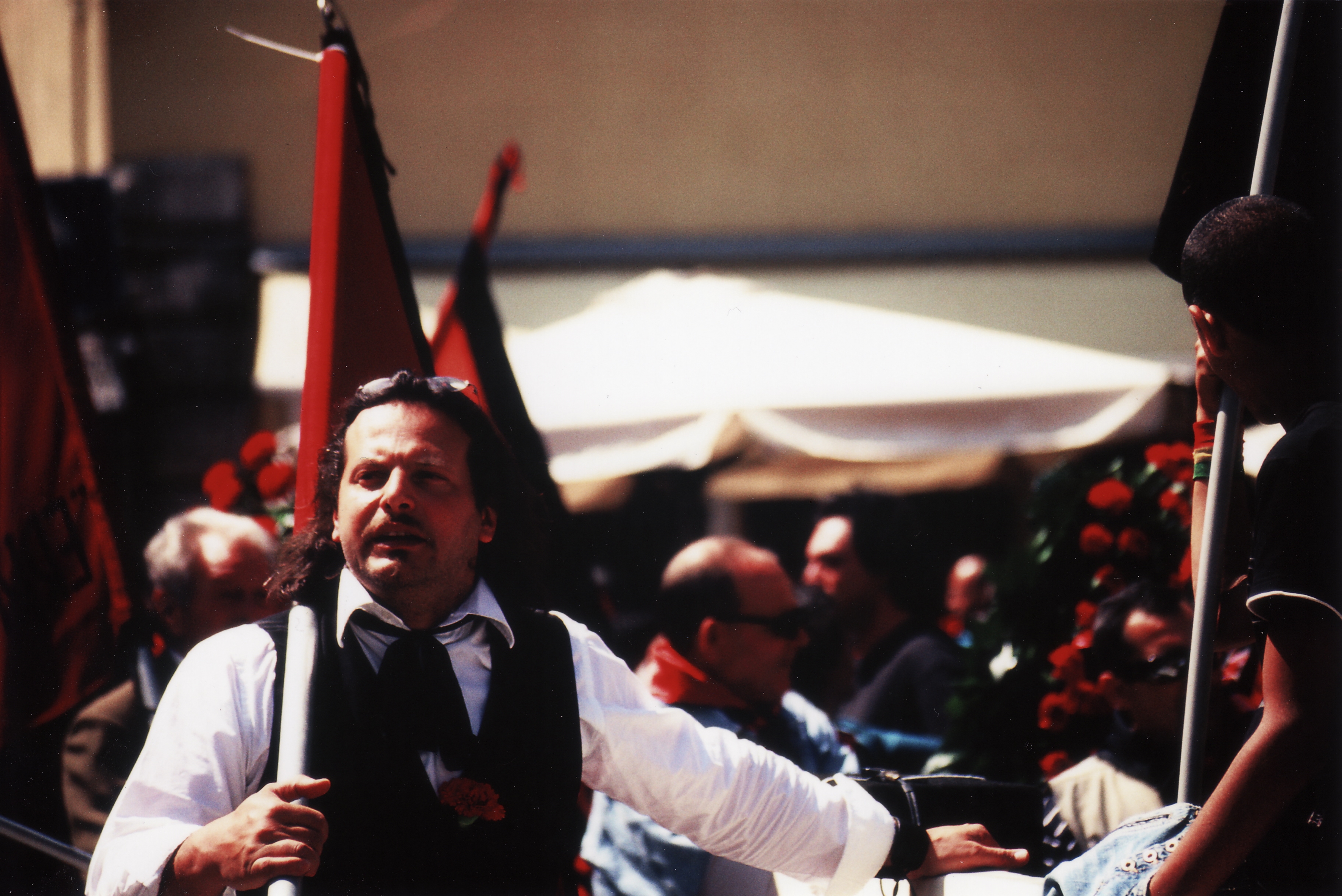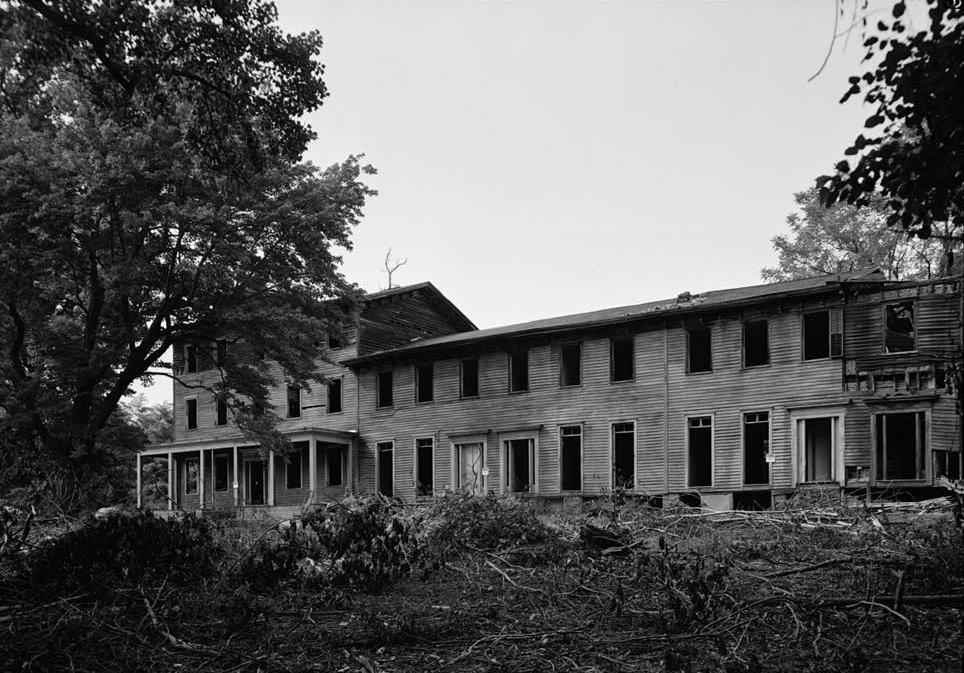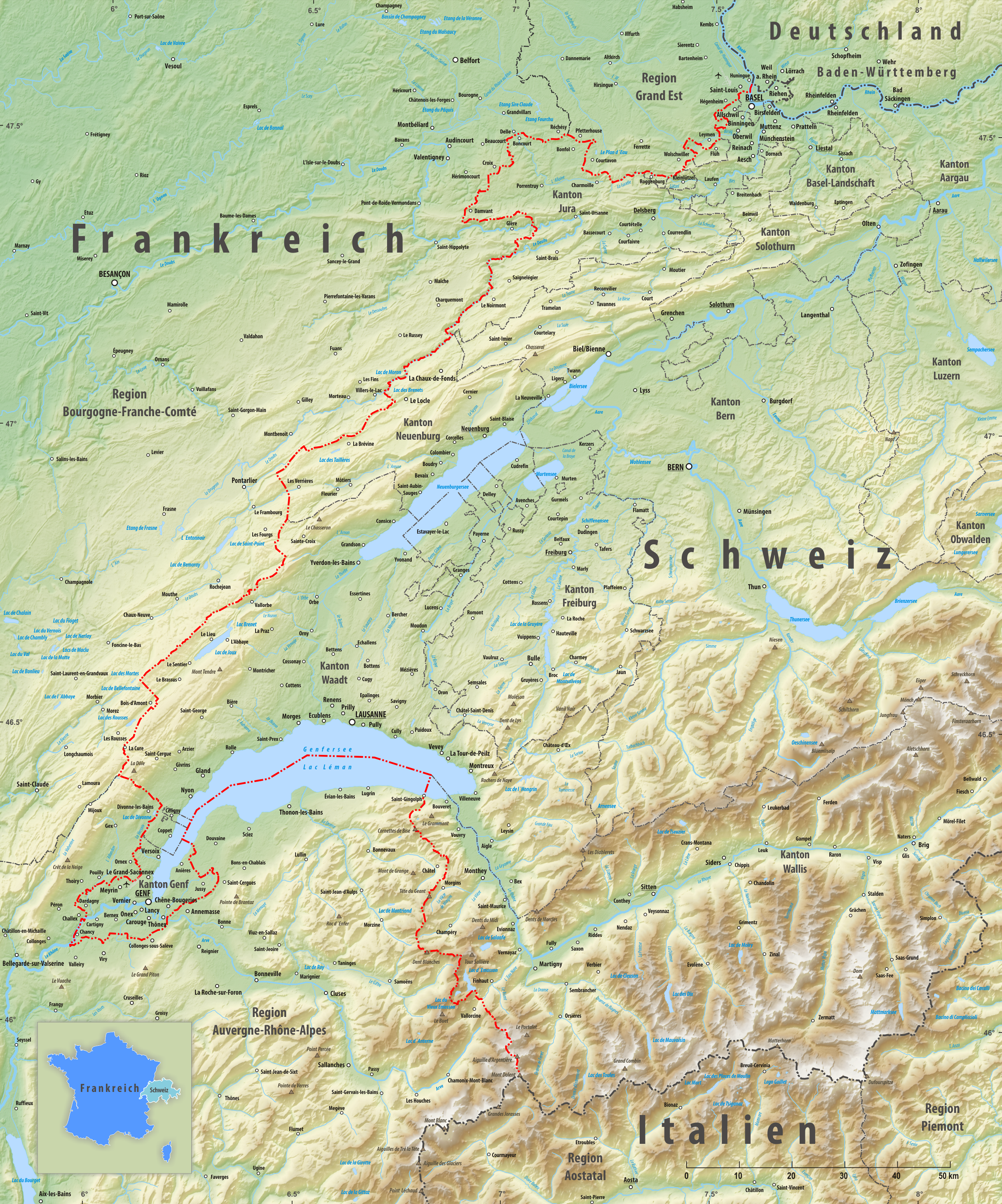|
Ernest Cœurderoy
Ernest Cœurderoy (1825–1862) was a French physician and revolutionary journalist. A participant in the French Revolution of 1848, he was forced into exile after its suppression. In Switzerland, he wrote extensively on the issue of socialism, synthesising his own form from mutualism and collectivism, and was harshly critical of the French republican leadership. He spent his remaining years in exile, even refusing a political amnesty from the French government, before committing suicide. His works were later rediscovered by the anarchists Max Nettlau and Jacques Gross, who claimed him to have been an early figure of the French anarchist movement. Biography Ernest Cœurderoy was born on 22 January 1825, in the French commune of Avallon. At the age of 17, he moved to Paris to study medicine, graduating in 1845 and becoming an intern at a Parisian hospital. Following the French Revolution of 1848, he became involved in revolutionary politics, becoming a revolutionary socialist ... [...More Info...] [...Related Items...] OR: [Wikipedia] [Google] [Baidu] |
Avallon
Avallon () is a commune in the Burgundian department of Yonne, in France. Name Avallon, Latin ''Aballō'', ablative ''Aballone'', is ultimately derived from Gaulish ''*Aballū'', oblique ''*Aballon-'' meaning "Apple-tree (place)" or "(place of the) "Apple Tree Goddess" (from Proto-Celtic ''*abalnā'', cf. Old Irish ''aball'', Welsh ''afall'', Old Breton ''aball(en)'', "apple tree"). Geography Avallon is located 50 km south-southeast of Auxerre, served by a branch of the Paris–Lyon railway and by exit 22 of the A6 motorway. The old town, with many winding cobblestone streets flanked by traditional stone and woodwork buildings, is situated on a flat promontory, the base of which is washed on the south by the river Cousin, on the east and west by small streams. History Chance finds of coins and pottery fragments and a fine head of Minerva are reminders of the Roman settlement carrying the Celtic name Aballo, a ''mutatio'' or post where fresh horses could be obtaine ... [...More Info...] [...Related Items...] OR: [Wikipedia] [Google] [Baidu] |
Anarchism In France
Anarchism in France can trace its roots to thinker Pierre-Joseph Proudhon, who grew up during the Restoration and was the first self-described anarchist. French anarchists fought in the Spanish Civil War as volunteers in the International Brigades. According to journalist Brian Doherty, "The number of people who subscribed to the anarchist movement's many publications was in the tens of thousands in France alone." History The origins of the modern anarchist movement lie in the events of the French Revolution, which the historian Thomas Carlyle characterized as the "open violent Rebellion, and Victory, of disimprisoned Anarchy against corrupt worn-out Authority". Immediately following the storming of the Bastille, the communes of France began to organize themselves into systems of local self-government, maintaining their independence from the State and organizing unity between communes through federalist principles. Direct democracy was implemented in the local districts of ... [...More Info...] [...Related Items...] OR: [Wikipedia] [Google] [Baidu] |
Cossacks
The Cossacks are a predominantly East Slavic languages, East Slavic Eastern Christian people originating in the Pontic–Caspian steppe of eastern Ukraine and southern Russia. Cossacks played an important role in defending the southern borders of Ukraine and Russia, Cossack raids, countering the Crimean-Nogai slave raids in Eastern Europe, Crimean-Nogai raids, alongside economically developing steppes, steppe regions north of the Black Sea and around the Azov Sea. Historically, they were a semi-nomadic and semi-militarized people, who, while under the nominal suzerainty of various Eastern European states at the time, were allowed a great degree of self-governance in exchange for military service. Although numerous linguistic and religious groups came together to form the Cossacks, most of them coalesced and became East Slavic languages, East Slavic–speaking Eastern Orthodox Church, Orthodox Christians. The rulers of the Polish–Lithuanian Commonwealth and Russian Empire en ... [...More Info...] [...Related Items...] OR: [Wikipedia] [Google] [Baidu] |
Means Of Production
In political philosophy, the means of production refers to the generally necessary assets and resources that enable a society to engage in production. While the exact resources encompassed in the term may vary, it is widely agreed to include the classical factors of production (land, labour, and capital) as well as the general infrastructure and capital goods necessary to reproduce stable levels of productivity. It can also be used as an abbreviation of the "means of production and distribution" which additionally includes the logistical distribution and delivery of products, generally through distributors; or as an abbreviation of the "means of production, distribution, and exchange" which further includes the exchange of distributed products, generally to consumers. The concept of "Means of Production" is used by researchers in various fields of study — including politics, economics, and sociology — to discuss, broadly, the relationship between anything that can have p ... [...More Info...] [...Related Items...] OR: [Wikipedia] [Google] [Baidu] |
Collective Ownership
Collective ownership is the ownership of private property by all members of a group. The breadth or narrowness of the group can range from a whole society to a set of coworkers in a particular enterprise (such as one collective farm). In the latter narrower sense, collective ownership is distinguished from common ownership and the commons, which implies open access, the holding of assets in common, and the negation of ownership as such. Collective ownership of the means of production is the defining characteristic of socialism, where ''collective ownership'' can refer to society-wide ownership ( social ownership) or to cooperative ownership by an organization's members. When contrasted with public ownership, collective ownership commonly refers to group ownership (such as a producer cooperative). See also * Condominium * Employee stock ownership * Market socialism * Mutualization * Personal property * Possession (law) * Worker cooperative * Workers' self-management ... [...More Info...] [...Related Items...] OR: [Wikipedia] [Google] [Baidu] |
Pierre-Joseph Proudhon
Pierre-Joseph Proudhon (, ; ; 1809 – 19 January 1865) was a French anarchist, socialist, philosopher, and economist who founded mutualist philosophy and is considered by many to be the "father of anarchism". He was the first person to call himself an ''anarchist'', using that term, and is widely regarded as one of anarchism's most influential theorists. Proudhon became a member of the French Parliament after the Revolution of 1848, whereafter he referred to himself as a '' federalist''. Proudhon described the liberty he pursued as the synthesis of community and individualism. Some consider his mutualism to be part of individualist anarchism while others regard it to be part of social anarchism.The Anarchist FAQ Collective; McKay, Ian, ed. (2008/2012). ''An Anarchist Faq''. I/II. Oakland/Edinburgh: AK Press. . . Proudhon, who was born in Besançon, was a printer who taught himself Latin in order to better print books in the language. His best-known assertion is that " p ... [...More Info...] [...Related Items...] OR: [Wikipedia] [Google] [Baidu] |
Pierre Leroux
Pierre Henri Leroux (; 7 April 1797 – 12 April 1871) was a French philosopher and political economy, political economist. He was born at Bercy, now a part of Paris, France, Paris, the son of an artisan. Life His education was interrupted by the death of his father, which compelled him to support his mother and family. Having worked first as a mason and then as a Compositor (typesetting), compositor, he joined P. Dubois in the foundation of ''Le Globe'' which became in 1831 the official organ of the Claude Henri de Rouvroy, Comte de Saint-Simon, Saint-Simonian community, of which he became a prominent member. In November of the same year, when Barthélemy Prosper Enfantin, Prosper Enfantin became leader of the Saint-Simonians and preached the enfranchisement of women and the functions of the ''couple-prêtre'', Leroux separated himself from the sect. In 1834, he published an essay entitled "Individualism and Socialism" which, despite its message of scepticism towards both tend ... [...More Info...] [...Related Items...] OR: [Wikipedia] [Google] [Baidu] |
Charles Fourier
François Marie Charles Fourier (; ; 7 April 1772 – 10 October 1837) was a French philosopher, an influential early socialist thinker, and one of the founders of utopian socialism. Some of his views, held to be radical in his lifetime, have become mainstream in modern society. For instance, Fourier is credited with having originated the word ''feminism'' in 1837. Fourier's social views and proposals inspired a whole movement of intentional communities. Among them in the United States were the community of Utopia, Ohio; La Reunion near present-day Dallas, Texas; Lake Zurich, Illinois; the North American Phalanx in Red Bank, New Jersey; Brook Farm in West Roxbury, Massachusetts; the Community Place and Sodus Bay Phalanx in New York State; Silkville, Kansas, and several others. In Guise, France, he influenced the . Fourier later inspired a diverse array of revolutionary thinkers and writers. Life Fourier was born in Besançon, France, on 7 April 1772. Serenyi 1967, p. ... [...More Info...] [...Related Items...] OR: [Wikipedia] [Google] [Baidu] |
France–Switzerland Border
The France–Switzerland border is long. Its current path is mostly the product of the Congress of Vienna of 1815, with the accession of Geneva, Neuchâtel and Valais to the Swiss Confederation, but it has since been modified in detail, the last time being in 2002. Although most of the border, marked with border stones, is unguarded, several checkpoints remain staffed, most notably on busy roads. Detailed path The tripoint where the border meets the Germany–Switzerland border and France–Germany border is in the river Rhine (at ) north of Basel. A monument has been built near it, known as the Dreiländereck. The border follows the Upper Rhine for about . It then runs south of EuroAirport Basel Mulhouse Freiburg and then towards the southwest, separating the villages of Schönenbuch (Switzerland), Neuwiller (France), Leymen (France) and Rodersdorf (Switzerland). It then enters the Jura chain, rising above of altitude before meeting the La Lucelle river at , betw ... [...More Info...] [...Related Items...] OR: [Wikipedia] [Google] [Baidu] |
Lausanne
Lausanne ( , ; ; ) is the capital and largest List of towns in Switzerland, city of the Swiss French-speaking Cantons of Switzerland, canton of Vaud, in Switzerland. It is a hilly city situated on the shores of Lake Geneva, about halfway between the Jura Mountains and the Alps, and facing the French town of Évian-les-Bains across the lake. Lausanne is located (as the crow flies) northeast of Geneva, the nearest major city. The Federal Supreme Court of Switzerland convenes in Lausanne, although it is not the ''de jure'' capital of the nation. The municipality of Lausanne has a population of about 140,000, making it the List of cities in Switzerland, fourth largest city in Switzerland after Basel, Geneva, and Zurich, with the entire agglomeration area having about 420,000 inhabitants (as of January 2019). The metropolitan area of Lausanne-Geneva (including Vevey-Montreux, Yverdon-les-Bains, Valais and foreign parts), commonly designated as ''Lake Geneva region, Arc lémanique ... [...More Info...] [...Related Items...] OR: [Wikipedia] [Google] [Baidu] |
Nyon
Nyon (; historically German language, German: or and Italian language, Italian: , ) is a Municipalities of Switzerland, municipality in Nyon District in the Cantons of Switzerland, canton of Vaud in Switzerland. It is located some 25 kilometers north east of Geneva's city centre, and since the 1970s it has become part of the Geneva metropolitan area. It lies on the shores of Lake Léman, Lake Geneva and is the seat of Nyon District. The town has () a population of and is famous in the sporting world for being the headquarters of the UEFA, Union of European Football Associations (UEFA) and the European Club Association (ECA). It is connected to the rest of Switzerland by way of the Route Suisse, the A1 motorway (Switzerland), A1 Motorway and the railways of the ''Arc Lémanique''. Name Nyon derives from one of the names used by the ancient Rome, Romans for the town, ''Noviodunum (Switzerland), Noviodunum'' or ''Noiodunum''. Other names for the town, particularly of colonies pla ... [...More Info...] [...Related Items...] OR: [Wikipedia] [Google] [Baidu] |
June Days Uprising
The June Days uprising () was an uprising staged by French workers from 22 to 26 June 1848. It was in response to plans to close the National Workshops, created by the Second Republic in order to provide work and a minimal source of income for the unemployed. The National Guard, led by General Louis-Eugène Cavaignac, was called out to quell the rebellion. Over 1,500 people were either killed or injured, while 4,000 insurgents were deported to French Algeria. The uprising marked the end of the hopes of a "Democratic and Social Republic" () and the victory of the liberals over the Radical Republicans. Background Louis Philippe's July monarchy oversaw a period of internal turmoil in France. The provisional government of the French Second Republic was declared after the abdication of the king in February, which immediately enacted democratic reforms such as universal male suffrage. To combat unemployment, the Second Republic funded the National Workshops, which provided j ... [...More Info...] [...Related Items...] OR: [Wikipedia] [Google] [Baidu] |








